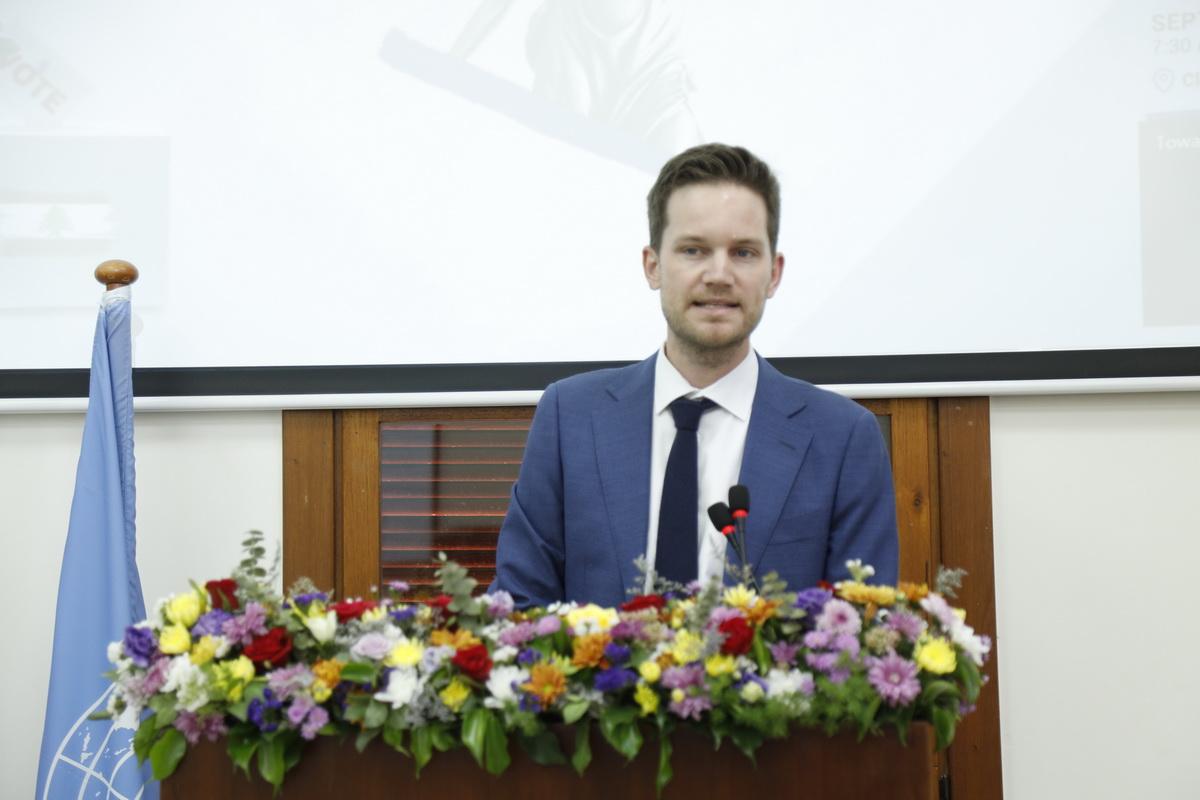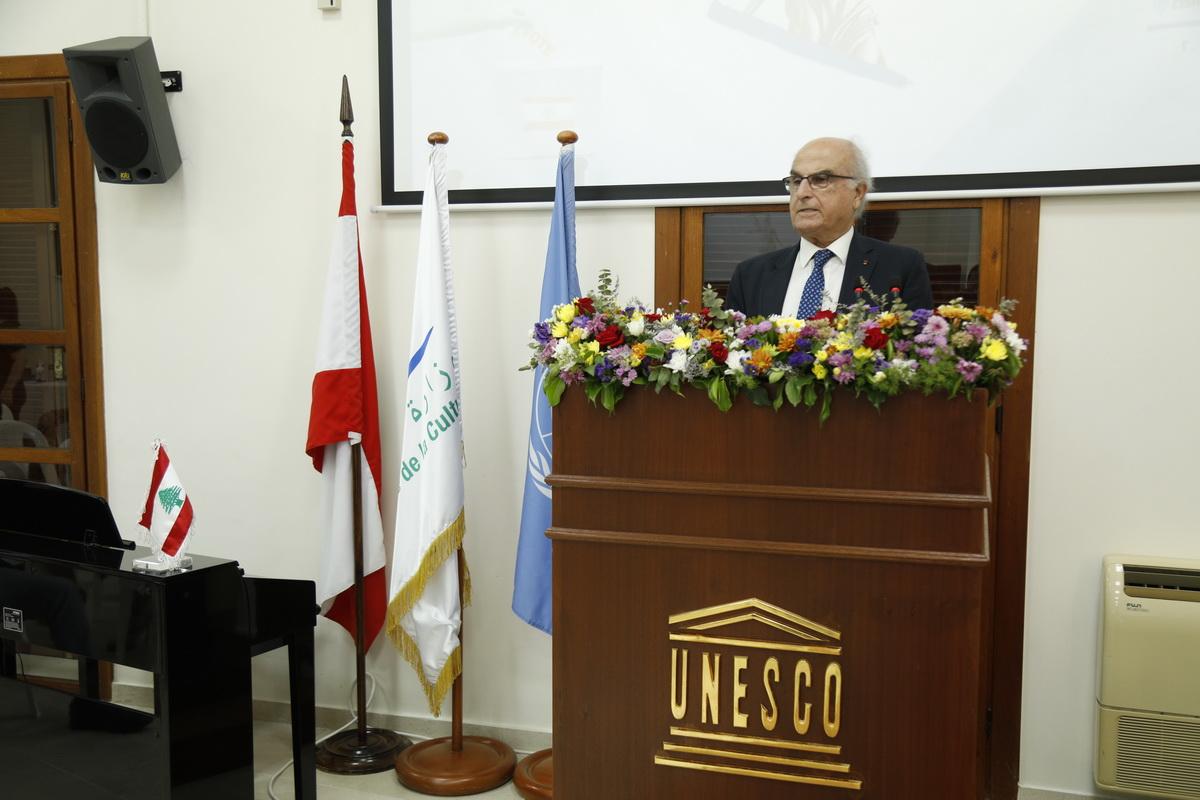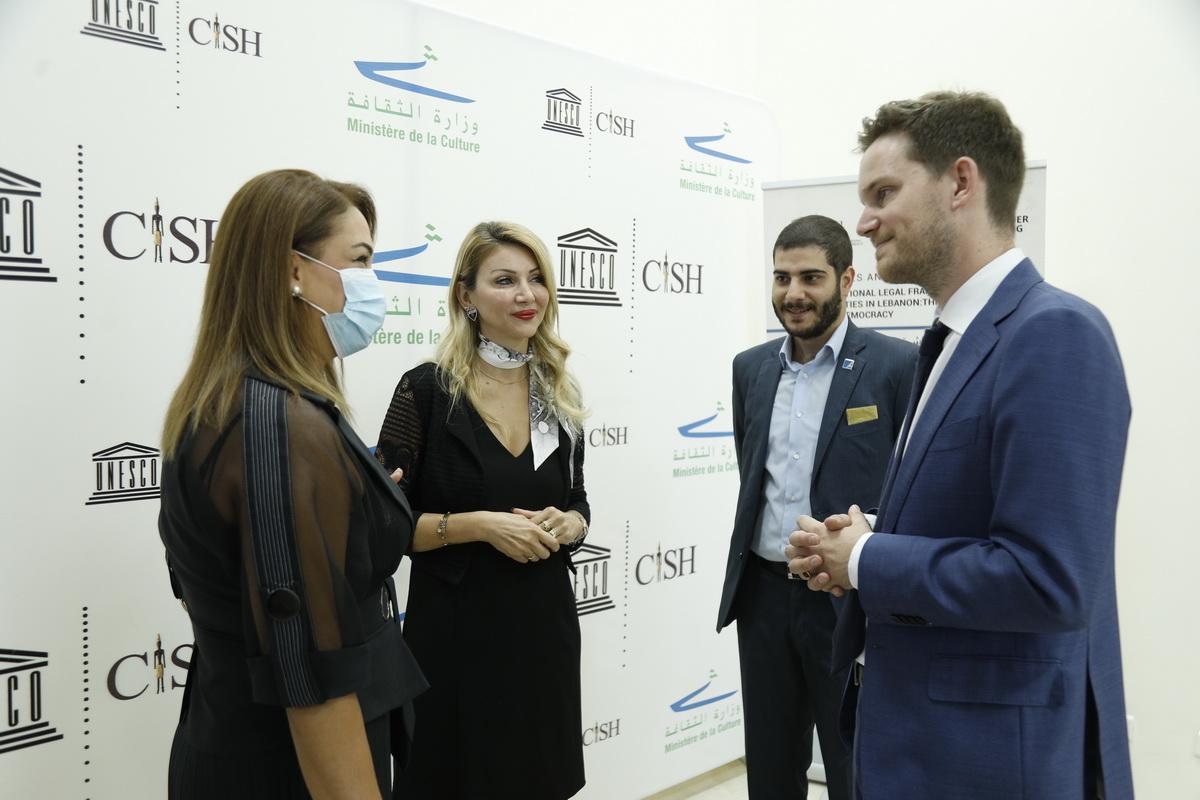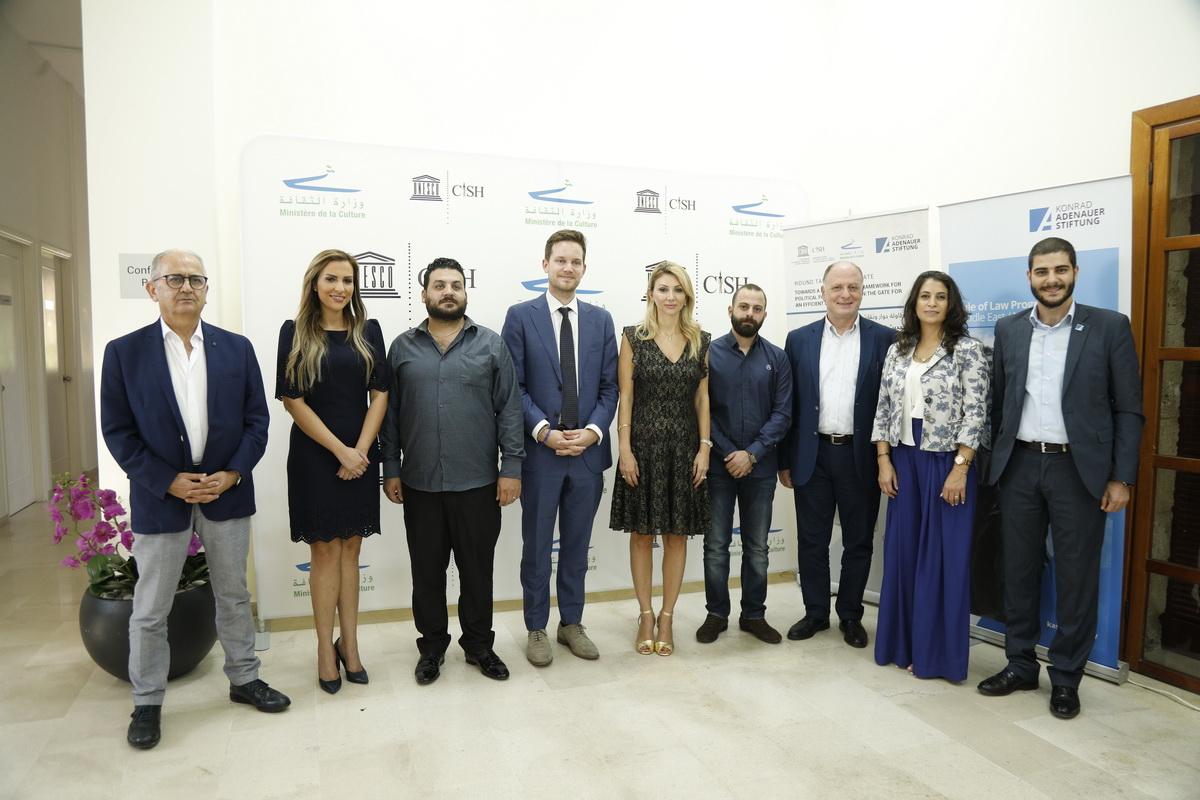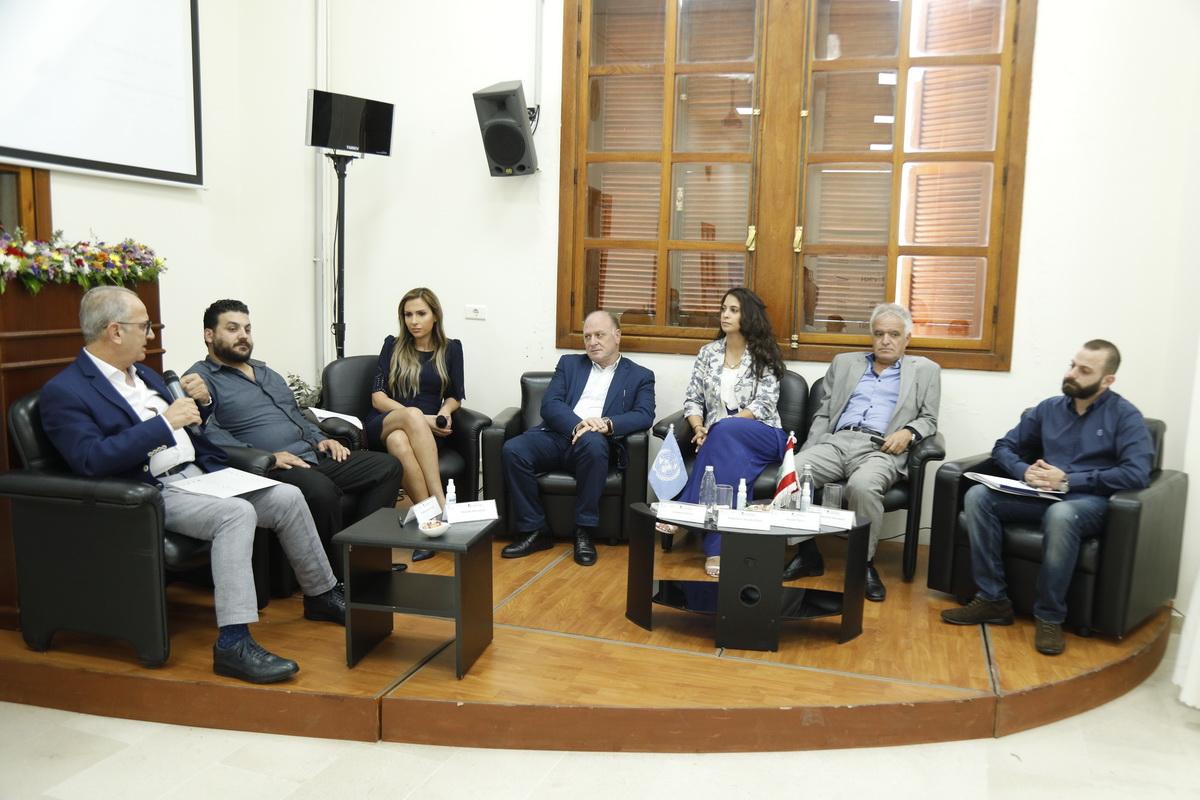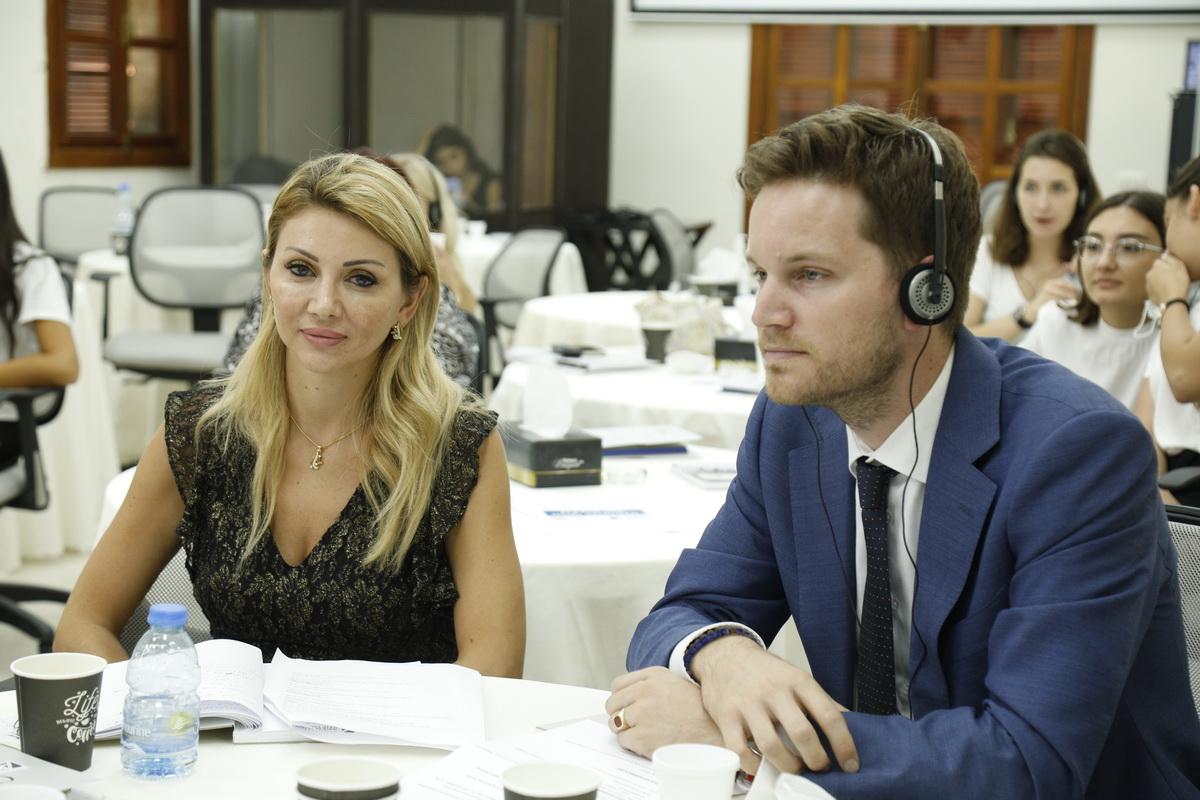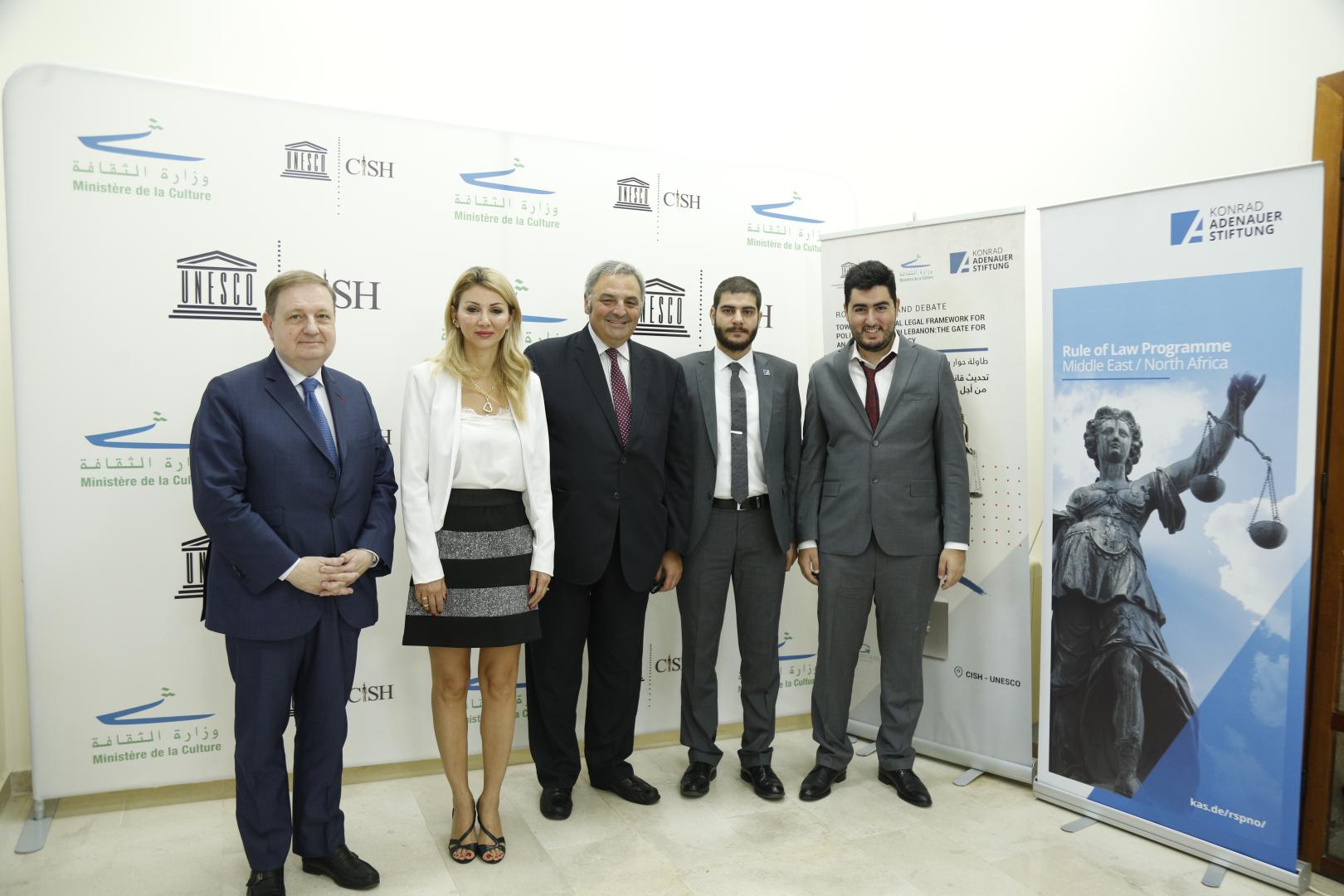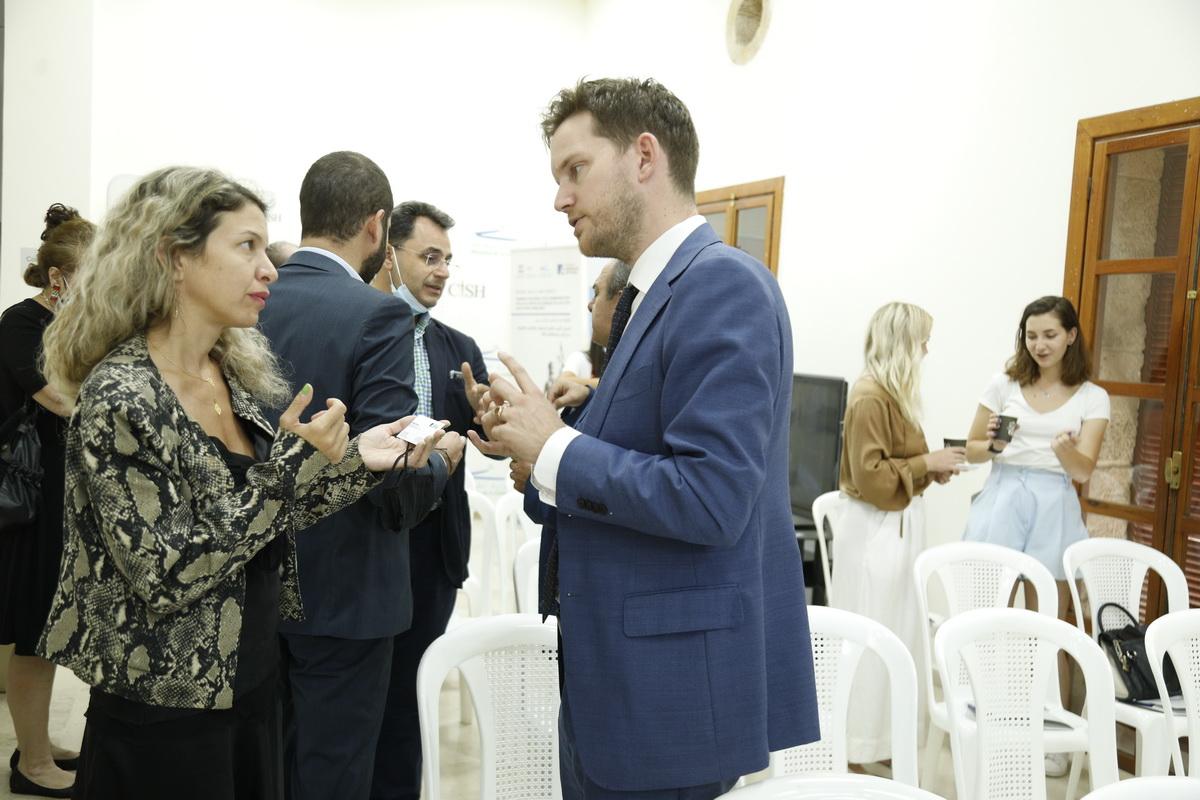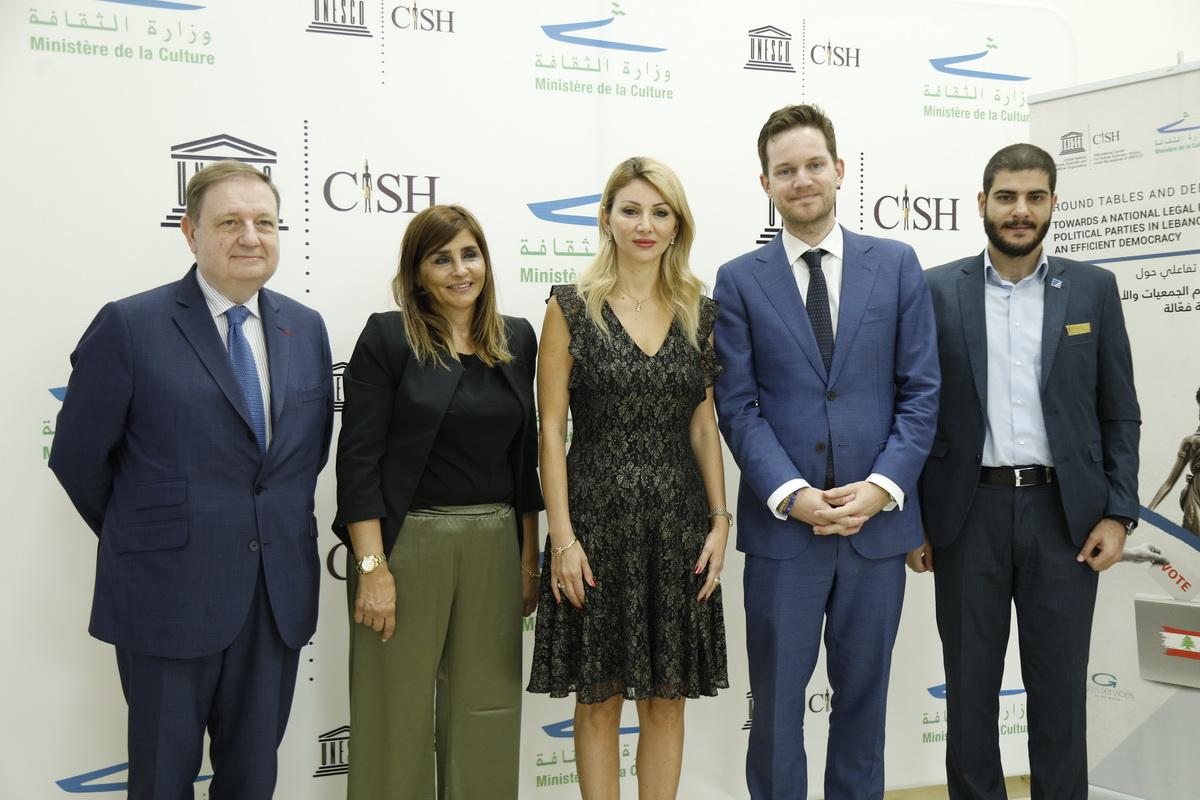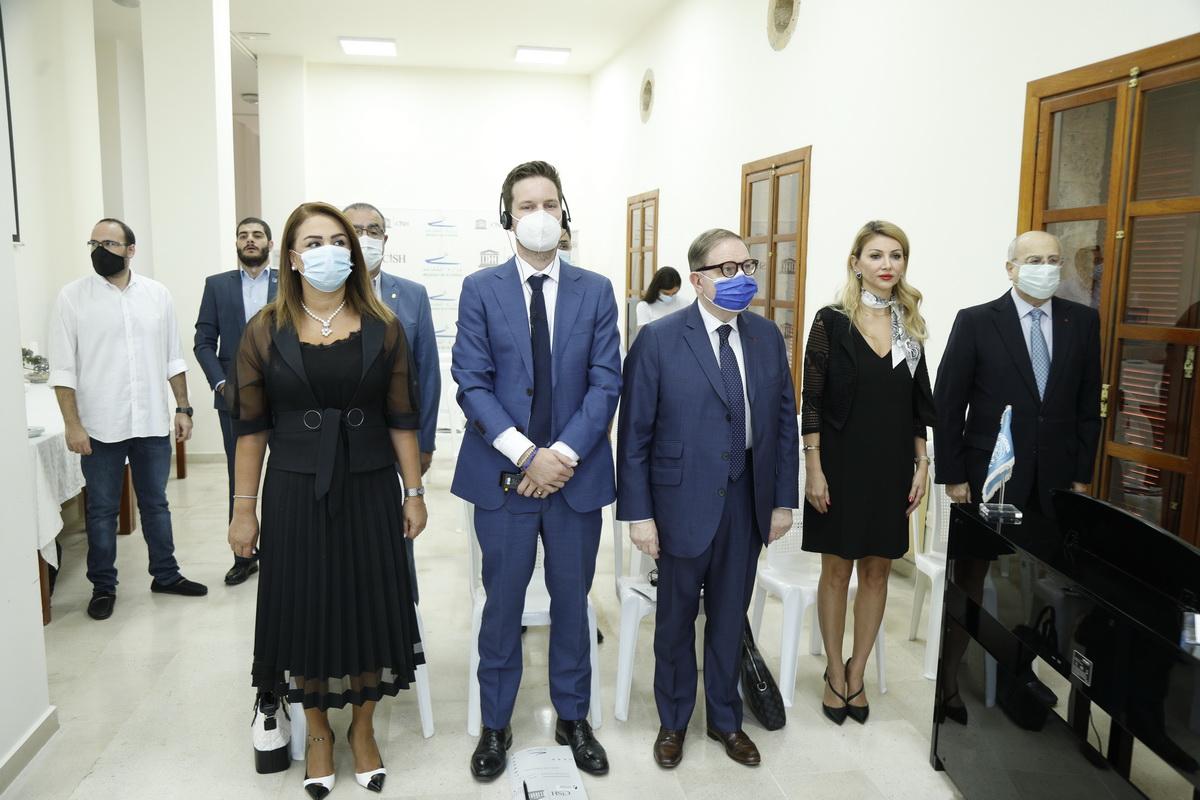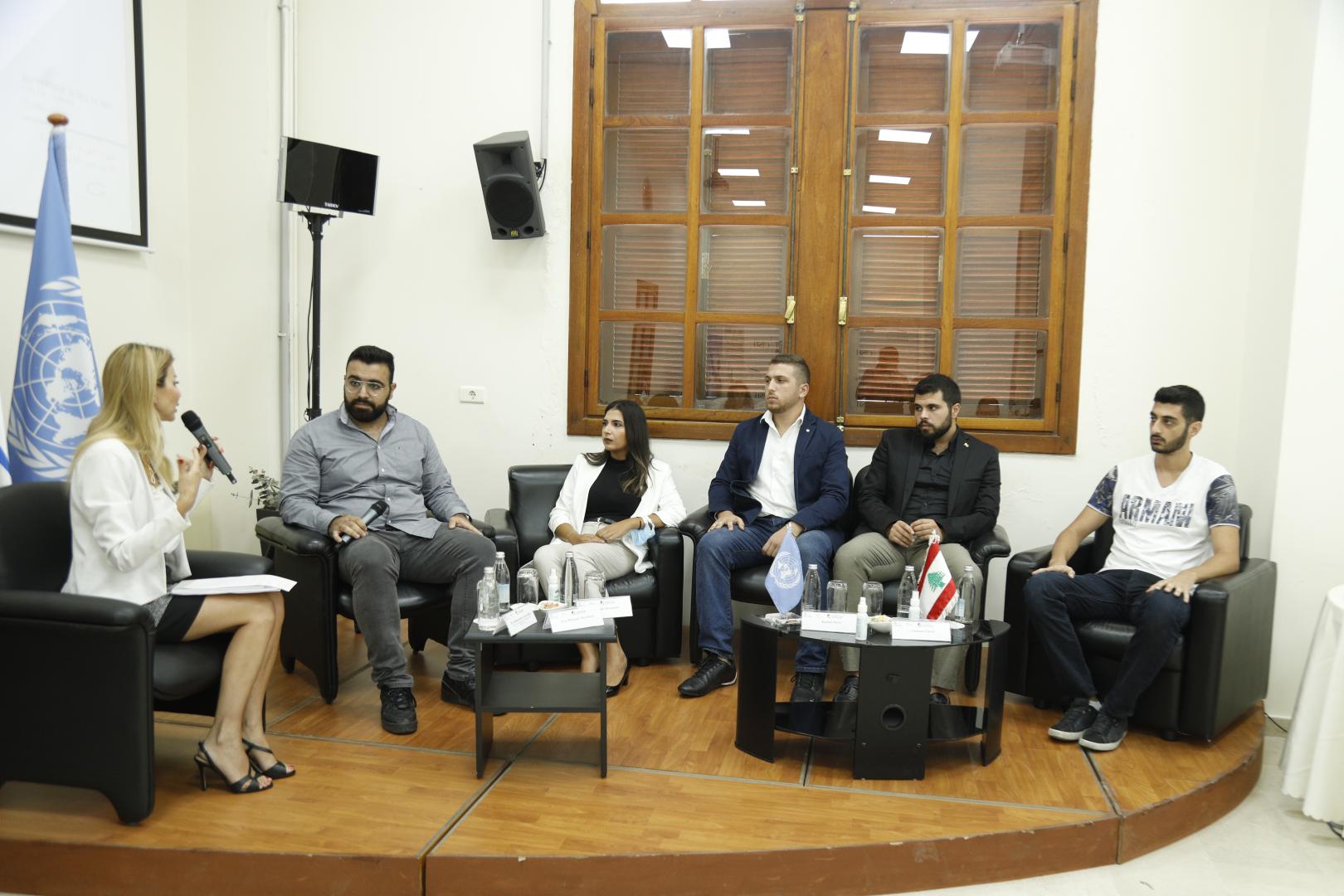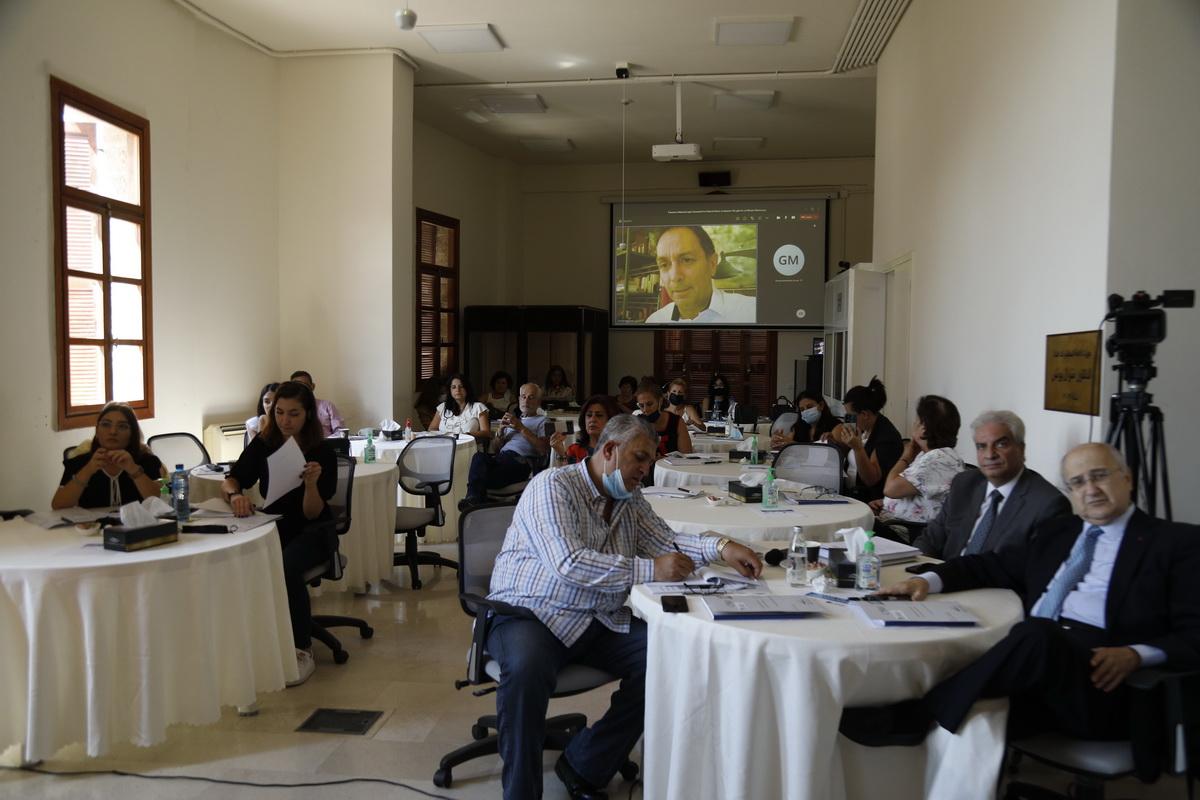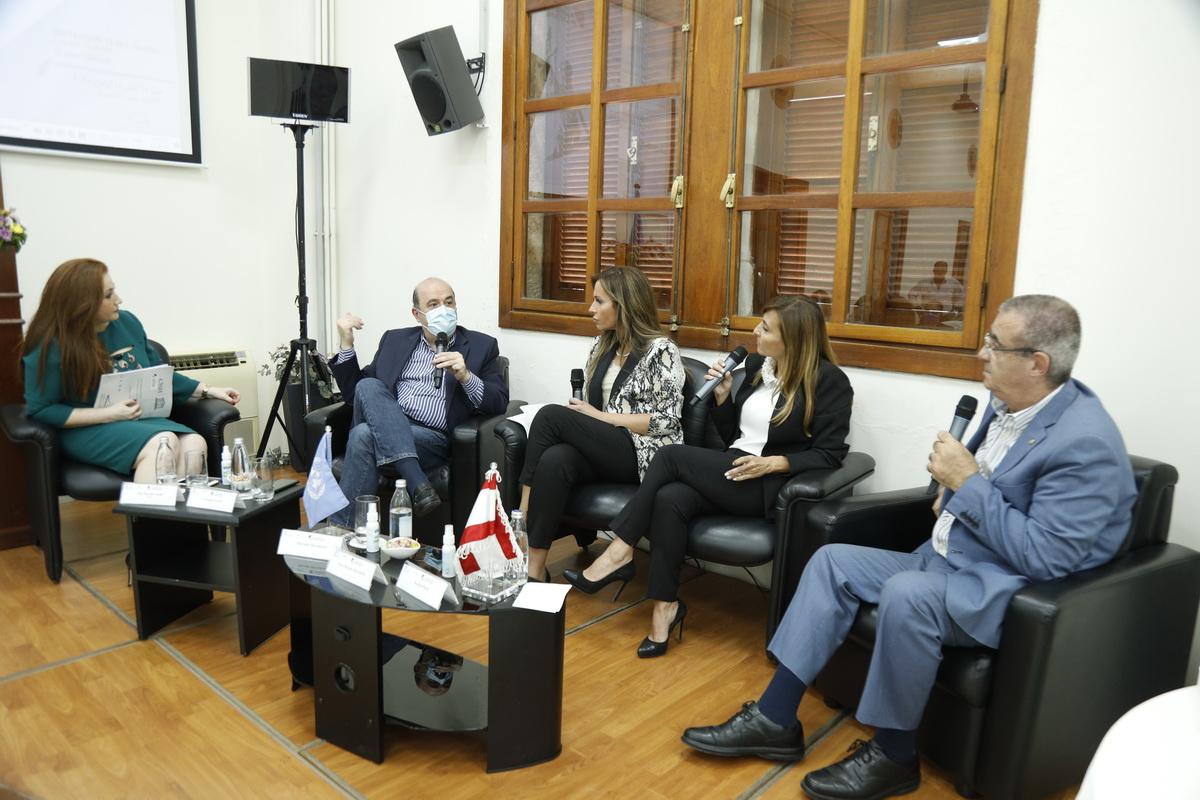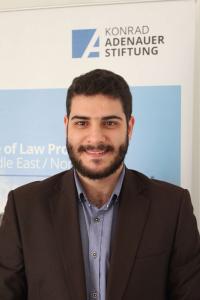Towards a national legal framework for political parties in Lebanon, the gate for an efficient democracy
The four days' workshop consisted of two phases:
- Phase one: “Two-days round table and debate with 100 participants”,
- Phase two: “Two-days 20 representative – Focus Group”.
The first phase focused on sharing the needed knowledge and awareness, while comparing with previous experiences in other countries. While the second phase will be focused on the debate and the recommendation draft for a common legal law.
In the opening session, following the Lebanese national anthem, Dr. Darina Saliba Abi Chedid, Director of the International Center for Human Sciences (CISH), welcomed all the guests and attendees, then, pointed out the importance of having a new political parties’ legislation, shedding light on the necessity of having a 'meritocracy' culture instead of the current widespread clientelism.
In the following opening speech, the head of the Rule of Law Progamme Middle east and North Africa at the Konrad-Adenauer-Stiftung Mr. Philipp Bremer introduced the attendees to the Konrad-Adenauer-Stiftung, its programs in Lebanon and in the region. He highlighted the importance of the workshop topic by stating: "that at the core of every democracy are different opinions, that meet, that are discussed and that in compromise must find a solution for the better of everyone. And in every democracy these opinions are organized in political parties". He added that "No democracy can properly work without political parties because they are integral to the free democratic basic order". On the other hand, Mr. Bremer encouraged youth to get involved in the Lebanese political life, stating: "with and through parties we can strengthen democratic values".
Afterwards, the sessions of the first two days, on the 15th and 16th of September, were as following:
The first session: the problematics of the current law regulating the Lebanese Associations and parties, and its repercussions on the political life.
Lawyer Michel Klimos alongside the former member of the parliament Me Ghassan Moukhaiber presented a legal analysis of the law in place and its defects. To note that, the current law organizing political parties and the one regulating the non-governmental organizations is the same. In force since 1909, it’s an Ottoman law, that does not guarantee democracy, neither transparency. Furthermore, the current law does not guarantee any control over the budgets and sources of incomes of political parties in Lebanon.
As for the former minister Ziad Baroud, he explained the prominent need for change in this matter, thus he pointed several suggested amendments. At the same time, the former minister urged for a ‘posteriori control’ and not a ‘priori control’ over the establishment of any political parties in order to avoid any kind of oppression by the State.
The second session: Democracy within political parties.
The international expert, Dr. Jean-Michel Berlemont, a law professor at the Science Po University Nancy in France, tackled the subject of the “organization of political parties in France”. It was a great opportunity for the audience to have an insight on the political parties’ legal framework in France especially, that Lebanon was a French protectorate, and that quiet few of the Lebanese legislative texts were influenced by French ones.
Dr. Marlene Sawaya, a professor at the Lebanese University, addressed the role of the 17th of October revolution that took place, in making change towards the political sphere, especially what is called in Lebanon the ‘civil society’. She added that, regardless of the fact that the civil society boomed since the revolution, what is more important to know is: the civil society positioning in the impasse of reform and the challenges of democracy.
At the end of the second session, a dialogue and interventions by parties’ representatives took place.
The third session: The financing resources of Lebanese Parties and the impact on elections and democracy.
The professor of Law at the Lebanese University, Dr. Rajaa El Sherif spoke from a legal aspect about the transparency in the financial resources of Lebanese political parties. She noted that a big difference exists between the legal texts in place and their implementation, which unfortunately, turns a possible reality into a myth.
Besides, the Judge Issam Sleiman, former head of constitutional council, pointed out the fundamental principles of democracy, one of them is the concept of ‘election’. Then, based on his previous experience he shed light on the topic of electoral appeals, that falls under the constitutional council’s jurisdiction. Judge Issam ended his speech by telling the audience about a controversial electoral appeal in which a known religious figure was the subject to a bribe.
The fourth session: Party and electoral media: Professionalism, misinformation and journalist safety.
This session started with a life experience of a photographer and a journalist: the first one was injured in a media coverage where he lost permanently sight in one eye; the second lost his job in a media institution because he refused to abide to their political affiliation.
Ms. Elsy Moufarrej, talked about the responsibility of media institutions, about the freedom of speech and journalists’ safety while pointing out her colleagues’ experiences. Ms. Moufarrej is journalist and a reporter, also a coordinator of the alternative syndicate of the press.
Another media expert, Dr. Mirna Abou Zeid, professor in journalism at the Lebanese University, tackled the subject entitled: “The Lebanese media and elections: the missing democracy and the ambiguity between information and publicity”. Dr. Mirna mentioned that media has a great importance especially of its ability to shape the public opinion, thus, a certain level of ethics should exist.
At the end of the fourth session, a dialogue and interventions by parties’ representatives took place.
The third day on the 17th of September was reserved for a dialogue session with political parties’ youth representatives to suggest recommendations, also the fourth day on the 18th of September was reserved to law syndicates, jurists and legal experts to suggest recommendations.
A paper draft wrapping up all the representations alongside recommendations will be written, translated, edited, issued and disseminated in both Arabic and English languages.
About this series
The Konrad-Adenauer-Stiftung, its educational institutions, centres and foreign offices, offer several thousand events on various subjects each year. We provide up to date and exclusive reports on selected conferences, events and symposia at www.kas.de. In addition to a summary of the contents, you can also find additional material such as pictures, speeches, videos or audio clips.



